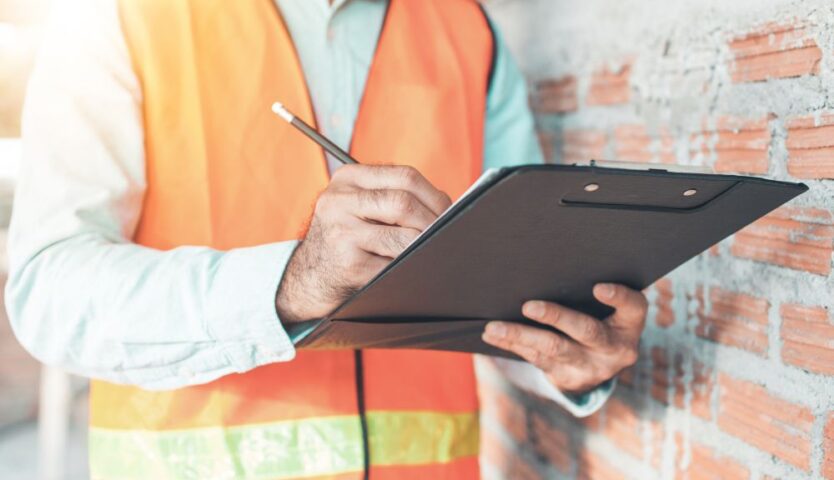15 Things to Know About a Commercial Building Inspection
Posted by on Jul 17, 2023 in Blog
When it comes to commercial real estate, commercial building inspections are a crucial step in the process of buying or leasing a commercial property.
A commercial inspection is vital as it provides a comprehensive evaluation of the building’s condition.
It helps uncover hidden defects, structural problems, safety hazards, and potential maintenance issues.
By conducting a thorough inspection, buyers or lessees can make informed decisions and protect their investments.
Let’s take a look at the important things you need to know about commercial building inspections:
1. Assessment Scope in Commercial Inspections
Commercial inspections cover a wide range of areas, including the building’s structure, roof, foundation, electrical systems, plumbing, HVAC, fire safety, and more.
The scope of the assessment depends on the property type, size, and specific requirements. Hiring an experienced inspector ensures a thorough evaluation of all relevant components.
2. The Complexity of Commercial Buildings
Commercial buildings are often more complex than residential properties. They may have multiple floors, intricate mechanical systems, elevators, parking lots, and specialized areas for specific business needs.
Inspecting these complex features requires expertise and a comprehensive understanding of commercial building construction.
3. Compliance with Codes and Regulations
Commercial properties must adhere to specific building codes and regulations. These codes ensure safety, accessibility, and adherence to environmental standards.
A thorough commercial inspection includes evaluating compliance with these regulations to identify any potential legal issues or code violations.
4. Suitability for Business Use
Beyond structural integrity, a commercial inspection also assesses the suitability of the property for the intended business use.
This includes evaluating zoning restrictions, accessibility requirements, parking availability, and any other factors that may impact the business’s operations.
5. Negotiating Repairs and Adjustments
Following the inspection, negotiations may arise between the buyer or lessee and the seller or landlord regarding necessary repairs or adjustments.
A comprehensive inspection report serves as a valuable tool for negotiation. It allows parties to discuss repairs, costs, and potential adjustments to the purchase or lease agreement.
6. Allocating Funds for Maintenance
Commercial buildings require ongoing maintenance to ensure their longevity and safety. The inspection report can help buyers or lessees understand the potential maintenance costs associated with the property.
This knowledge allows for better financial planning and allocation of funds for future repairs and maintenance.
7. Further Evaluation if Needed
In some cases, a commercial inspection may uncover issues that require specialized expertise beyond the scope of the initial assessment.
This may involve additional inspections by specialists such as structural engineers, environmental consultants, or pest control experts. Further evaluation ensures a comprehensive understanding of the property’s condition.
8. Legal Guidance in Contract Review
Commercial inspections are an integral part of the due diligence process when buying or leasing a property.
A lawyer familiar with commercial real estate can provide guidance in reviewing the contract, ensuring that the inspection findings are properly addressed, and protecting the buyer or lessee’s interests.
9. Negotiation Support and Protection
During the negotiation phase, a lawyer can provide valuable support and protection. They can help navigate repair negotiations, clarify contractual obligations, and ensure that all parties meet their legal responsibilities.
This support minimizes the risk of disputes and provides a solid foundation for a successful transaction.
10. Assessing Potential Legal Risks
Commercial inspections play a crucial role in assessing potential legal risks associated with a property. These risks may include environmental liabilities, building code violations, zoning issues, or non-compliance with accessibility standards.
Identifying these risks in advance allows parties to mitigate or address them before finalizing the transaction.
11. Informed Decision Making and Investment Protection
Ultimately, a commercial building inspection empowers buyers or lessees to make informed decisions and protects their investment.
By understanding the property’s condition, potential repairs, and legal risks, individuals can negotiate fair terms, budget for maintenance, and ensure the property meets their business needs.
12. Environmental Considerations
Commercial inspections may include assessing environmental factors such as the presence of hazardous materials (e.g., asbestos, lead-based paint), soil contamination, or potential issues with air quality.
Evaluating these factors is crucial to ensure compliance with environmental regulations and mitigate health and safety risks.
13. Accessibility Compliance
Commercial properties must comply with accessibility standards to accommodate individuals with disabilities.
Inspections include evaluating the property’s accessibility features, such as ramps, parking spaces, doorways, and restroom facilities, to ensure compliance with applicable accessibility codes, such as the Americans with Disabilities Act (ADA).
14. Specialized Equipment and Systems
Certain commercial properties, such as manufacturing facilities or medical offices, may have specialized equipment and systems.
These can include industrial machinery, medical equipment, or specialized electrical and HVAC systems. Inspections should involve experts familiar with these specific systems to assess their condition and functionality.
15. Structural Integrity and Load-Bearing Capacity
Commercial buildings often have larger spans and support heavier loads compared to residential structures.
Inspections focus on evaluating the structural integrity of the building, including load-bearing walls, columns, beams, and foundations. This assessment ensures the building can withstand the intended use and potential future modifications.
Frequently Asked Questions
Do you still have questions? Here are some frequently asked questions about commercial building inspections and their importance when purchasing property for your business:
Do I need to get a commercial inspection done when buying property for my business?
Yes, getting a commercial inspection is highly recommended when purchasing property for your business.
A commercial inspection provides a thorough evaluation of the property’s condition, identifying potential issues and ensuring that it is safe and suitable for your business operations.
It helps you make an informed decision and protects your investment.
How is a commercial inspection different from a home inspection?
Commercial inspections differ significantly from home inspections. Commercial properties have unique systems and components, such as HVAC, plumbing, electrical, and fire safety, which require specialized knowledge.
Commercial inspections also focus on the property’s suitability for business use, compliance with codes and regulations, and potential legal risks specific to commercial properties.
What happens if something requires repair?
If the commercial inspection identifies repairs that are needed, you have several options. You can negotiate with the seller or landlord to address the repairs before finalizing the purchase or lease agreement.
In some cases, you may request a reduction in the purchase price or lease terms to compensate for the required repairs. It is important to consult with professionals such as contractors or engineers to assess the severity and cost of the repairs.
How can a lawyer assist in this process?
A lawyer can play a crucial role in the commercial inspection process. They can review the inspection report, identify potential legal risks, and ensure that all contractual obligations are met.
If repairs are needed, a lawyer can provide guidance and support during negotiations with the seller or landlord.
They can also assist in contract review, protecting your interests, and ensuring that all legal requirements are fulfilled throughout the transaction.
Protect Your Investment with a Comprehensive Commercial Building Inspection
A commercial building inspection is an essential safeguard when purchasing or leasing a commercial property. It ensures a thorough evaluation of the property’s condition, identifying potential issues and assessing legal risks.
To navigate the complex process of commercial inspections and safeguard your interests, it is crucial to seek the guidance of experienced professionals.
Heritage Law specializes in commercial real estate and can provide the legal support and protection you need.
Contact us today to ensure a seamless inspection process, negotiate fair terms, and safeguard your investment. Your peace of mind is our priority.






